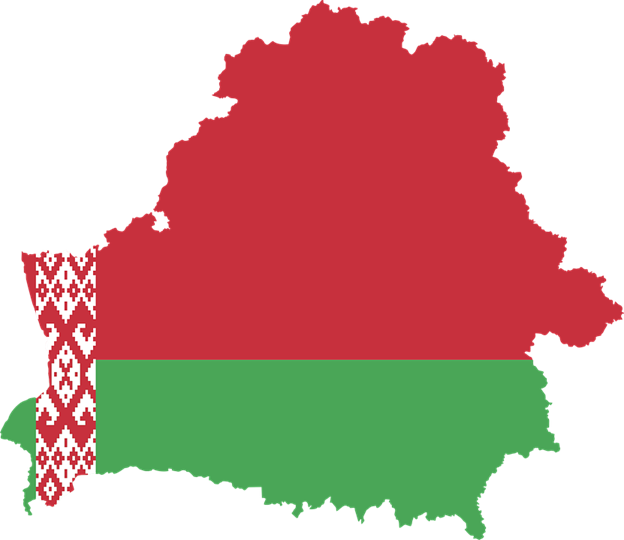Russia needs friends but since the dissolution of the Soviet Union has settled on the misdirected goal of attempting to dominate its neighbors and former satellite states. What Putin is attempting to acquire today could more correctly be termed borderless “special relationships,” not true alliances. That attitude is tolerated, but not well received in foreign state capitals across Eastern Europe. One of the more interesting, related events was virtually overlooked in Western media this month. It is the lingering, but evolving, bilateral integration between Russia and Belarus under the auspices of the Union State.
On April 6, Russia’s Supreme State Council of the Union State met to discuss the political-military environment in Europe, among other topics, according to Yauheni Preiherman of the Jamestown Foundation. “The meeting’s agenda included a review of the progress on the Guidelines for Implementing the Provisions of the Treaty Establishing the Union State in 2021–2023, a document that envisages joint work under 28 sectoral Union programs” according to a Russian government press release. Kremlin spokesman Dmitry Peskov noted that, at the meeting, Russian President Vladimir Putin did not discuss the placement in Belarus, of Russian strategic nuclear weapons in talks with Belarusian President Alexander Lukashenko. Previously in March, however, there was an intensification of tensions between Russia and the West. Putin announced that he did intend to station Russia’s shorter-range, tactical nuclear weapons in Belarus. Russia’s propaganda machine has extensive expertise in misdirection and uses it to further its goals. Preiherman says Moscow is now claiming this move was forced upon it by the expansion of the NATO military alliance towards Russia’s borders.
Minsk and Moscow have a long and complicated history. By the early 1990’s, Moscow began discussing the reintegration of Belarus. By the April 2019 Minsk Dialogue, the two states had already signed a number of unique agreements. Preiherman says the 1999 Treaty on the Establishment of the Union State of Belarus and Russia was misinterpreted in the West as Belarus abrogating its sovereignty to Russia. He adds that, in reality, “the treaty itself did not facilitate the transfer of Belarus’s sovereignty either to Moscow or any supranational bodies. Instead, the 1999 agreement enshrined several checks and balances that provided for legal parity between the two countries and ensured that no Union State decision would pass unless accepted by Minsk.”
Many Belarusian leaders, however, grew concerned that the treaty and future subsequent agreements could evolve into a steppingstone approach by Moscow to draw Minsk closer and eventually incorporate it into the Russian state. Kommersant reports that these worries were particularly acute after Russian President Vladimir Putin famously demanded in 2002 that “flies be separated from cutlets” and invited Belarus to join the Russian Federation. Minsk declined the offer. Then-Russian Prime Minister Dmitry Medvedev, in December 2018, put out what became known as the “integration ultimatum.”
It stated that the special relationship between Belarus and Russia could only be preserved if both countries returned to the full implementation of the Union State treaty. In response, Preiherman says, Minsk agreed to launch structured talks but adhered to an uncompromising position on all issues that could potentially undermine its sovereignty. “Multiple asymmetries in Belarusian-Russian relations notwithstanding, Minsk could still allow for such a tough stance in those days thanks to what appeared to be expanding room for geostrategic maneuver and, most importantly, growing opportunities for diversifying foreign trade and investment, primarily through enhanced cooperation with the West,” he adds. Since the beginning of Russia’s war in Ukraine, Belarus’ pathway to avoiding sanctions narrowed. As a result, over the last 18 months the two countries announced they have initiated 28 sectoral programs to advance bilateral integration. A formal decree was signed in November 2021 to authorize the implementation of the integration programs. By January of this year approximately 70% of the 28 planned programs were in progress.
As of this month that number has increased to 80%, according to the publication RIA Novasti. Belarusian Deputy Prime Minister Pyotr Parkhomchyk says this “will allow for achieving technological sovereignty within the Union State’s framework.” One result this spring is that economic cooperation between the two has dramatically increased. The volume of Belarusian-Russian trade increased by 35 percent in 2021 and by another 12 percent in 2022, amounting to $45 billion in goods and about $5 billion in services, according to Preiherman. As the two states become more isolated they are likely to become more dependent on each other. The voices of leaders in Minsk urging caution about becoming too engaged with Moscow, are drowning in the sound of goods exchanged and money transferred into its Belarus’ coffers.
Daria Novak served in the U.S. State Dept.
